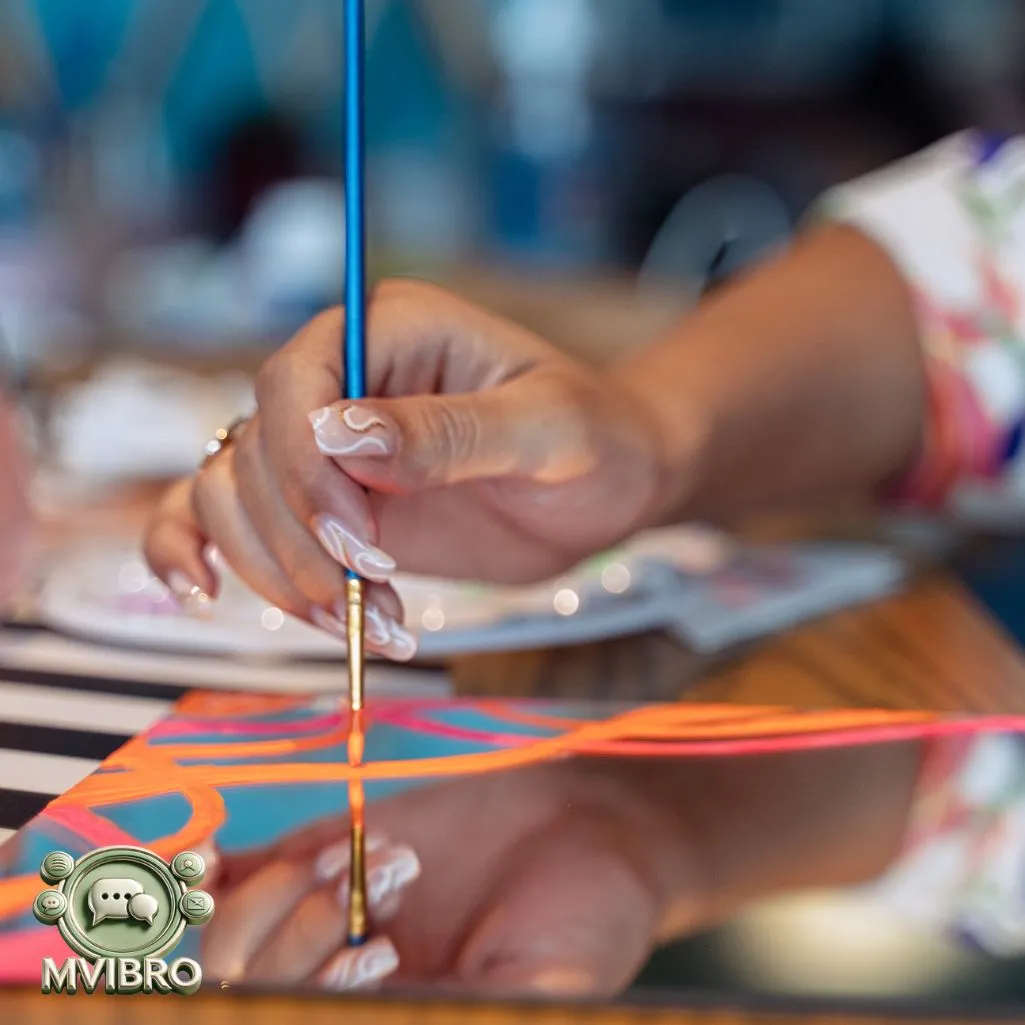“Addressing accusations of lying can be challenging, but the right approach helps you regain trust and credibility.”
Facing an accusation of lying is a situation no one wants to be in, but it happens more often than we think. Whether at work, in relationships, or during everyday conversations, misunderstandings or mistrust can lead to these uncomfortable confrontations.
Addressing such accusations professionally not only protects your reputation but also helps maintain respectful interactions. Understanding how to respond thoughtfully can turn this challenge into an opportunity to demonstrate your integrity.
When faced with this predicament, it is essential to stay composed, listen carefully, and address the concern calmly. Hasty reactions can escalate the issue, while a professional demeanor can help de-escalate tensions.
This article offers actionable strategies to handle accusations of dishonesty effectively. By exploring various communication styles, we’ll equip you with tools to handle these situations gracefully and confidently.
In the following sections, you’ll learn to address accusations of lying through direct communication, humor, subtle suggestions, and even formal expressions. These techniques, combined with practical examples, will ensure you can navigate accusations professionally and maintain your credibility.
List of Address Being Accused of Lying Professionally
- Direct Accusations
- Implying Dishonesty
- Humorous Approaches
- Sarcastic Remarks
- Questioning Integrity
- Subtle Suggestions
- Expressing Skepticism
- Using Body Language or Non-verbal Cues
- Using Analogies or Metaphors
- Confrontational Approaches
- Formal or Polite Expressions
- Cultural References
- Emotional Responses
- Indicating a Lack of Evidence
- Challenging Their Perspective
- Suggesting Manipulation
- Colloquial Expressions
- Referring to Consequences
- Using Historical References
- Invoking Trust Issues
Direct Accusations
- “I did not lie, and I am happy to clarify this further.”
- “I understand your concerns, but I stand by my statement.”
- “That’s a serious claim, and I want to address it directly.”
- “If you have evidence to support this, let’s review it together.”
- “I prefer we resolve this calmly and respectfully.”
- “Your perspective matters, but I disagree with the accusation.”
- “Let’s break this down to see where the misunderstanding occurred.”
- “I always aim for honesty, and I’ll prove that with facts.”
- “You can verify the information; I have nothing to hide.”
- “It hurts to be accused of lying, but I’m here to resolve it.”
- “I take these claims seriously and will address them properly.”
- “What makes you feel I’m not being truthful?”
- “Let’s focus on clearing up any confusion.”
- “Being honest is important to me, and I can show that.”
- “I want to rebuild trust; let’s work on this together.”
Implying Dishonesty
- “Are you suggesting I’m not being truthful?”
- “That seems like an indirect accusation. Could we clarify this?”
- “It feels like you’re doubting my integrity—can we talk about why?”
- “What makes you think I would mislead you?”
- “Is there something specific that raised this suspicion?”
- “Let’s ensure all facts are on the table to clear doubts.”
- “If I’ve misspoken, I’ll correct it, but I wasn’t dishonest.”
- “This sounds like a misunderstanding we can clear up.”

- “Do you think I had a reason to lie in this situation?”
- “What makes you question my honesty here?”
- “I value transparency, and I’d like to understand your doubts.”
- “Let’s review the details to ensure accuracy.”
- “I’m happy to answer any questions to clarify.”
- “Do you believe I’ve intentionally misled you?”
- “I’m open to discussing this to clear up confusion.”
Humorous Approaches
- “Me, lying? That’s as likely as pigs flying!”
- “You think I’m lying? My poker face must be terrible.”
- “If I lied, my nose would be longer than Pinocchio’s!”
- “Come on, lying isn’t even in my skillset.”
- “You caught me—lying about how much coffee I drink.”
- “Accuse me of anything, but not lying—I’m terrible at it!”
- “If I were lying, I’d be sweating buckets by now.”
- “Really? You think I’d lie about something so boring?”
- “I’d lie if I said I enjoyed being accused of lying.”
- “Lying? Me? You give me too much credit for creativity!”
- “Lying is hard work, and I prefer the easy life.”
- “If lying were an Olympic sport, I’d be in last place.”
- “Trust me, I’m bad at lying and even worse at getting away with it.”
- “Do I look like someone who could pull off a convincing lie?”
- “That’s a bold accusation—let’s laugh it off and talk facts.”
Sarcastic Remarks
- “Oh yes, I wake up every morning planning my next big lie.”
- “You’ve discovered my secret career as a professional liar.”
- “Wow, I had no idea I was so untrustworthy!”
- “Sure, because lying gets me so far in life.”
- “Guess I should have been an actor with all my ‘lying’ talent.”
- “You’ve cracked the case—I’m clearly a master manipulator.”
- “How kind of you to assume the worst about me!”
- “Obviously, I spent hours rehearsing this ‘lie.’”
- “Yes, because I’d totally lie about something so trivial.”
- “Good to know you trust me so much!”
- “Thank you for the vote of confidence in my honesty.”
- “If only my lies were as good as your suspicions.”
- “Next time, I’ll try harder to be ‘believable.’”
- “Oh sure, I’ve been lying to you this whole time!”
- “How thoughtful of you to think so highly of my honesty.”
Questioning Integrity
- “Do you truly believe I would compromise my integrity like this?”
- “What leads you to question my honesty in this situation?”
- “Do you think my character reflects dishonesty?”
- “Have I given you any reason in the past to doubt my word?”
- “Why would I risk my reputation by lying about this?”
- “Do you trust me enough to discuss this openly?”
- “What specific behavior makes you think I’m lying?”
- “Would you accuse me without solid proof?”
- “Do you realize how serious this claim is?”

- “Have you considered other explanations for this misunderstanding?”
- “Can we talk about what honesty means in this context?”
- “Do you think I’d jeopardize our relationship over a lie?”
- “Why would I lie when the truth is simpler?”
- “Do you think I’m capable of such deception?”
- “What do you need from me to trust my words?”
Subtle Suggestions
- “Could there be a mix-up in the facts here?”
- “Is it possible you misunderstood what I meant?”
- “Do you think there’s another perspective to consider?”
- “What if we review this again to be sure?”
- “Perhaps we need more information to clarify this.”
- “Let’s revisit the details; there might be a discrepancy.”
- “Could emotions be clouding the facts?”
- “Maybe there’s a way to verify what I said.”
- “Do you think assumptions are influencing your judgment?”
- “Should we involve someone neutral to mediate?”
- “Could the situation be more complicated than it seems?”
- “Is it fair to jump to conclusions without more evidence?”
- “What if the truth is simpler than you think?”
- “Would double-checking help clear this up?”
- “Maybe talking this through again will help.”
Expressing Skepticism
- “It surprises me that you’d question my honesty.”
- “I’m shocked you’d think I could be untruthful.”
- “It seems unlikely that you truly believe this.”
- “Are you sure this accusation aligns with who I am?”
- “It’s odd to hear this from someone who knows me well.”
- “This feels out of place—do you really believe it?”
- “It’s hard to imagine you’d think this of me.”
- “I wonder if you’ve fully considered the situation.”
- “It doesn’t seem logical to make this assumption.”
- “I find it strange you’d jump to this conclusion.”
- “It’s surprising to hear this from someone I trust.”
- “I’m puzzled as to why this seems plausible to you.”
- “Does this accusation reflect what you truly feel?”
- “Are you certain this is the conclusion you want to draw?”
- “It’s difficult to see how this accusation fits the facts.”
Using Body Language or Non-verbal Cues
- Maintain direct eye contact to show confidence.
- Use open hand gestures to convey honesty.
- Nod slightly to acknowledge the other person’s concerns.
- Avoid crossing your arms, as it might seem defensive.
- Smile warmly to reduce tension.
- Lean slightly forward to show engagement.
- Maintain a calm and steady voice tone.
- Raise an eyebrow to express surprise subtly.
- Shake your head gently to signal disagreement.
- Take a deep breath to appear composed.
- Sit upright to display confidence and openness.
- Use small, reassuring gestures like a soft pat on the table.
- Avoid fidgeting, which could imply nervousness.
- Pause thoughtfully before responding to appear measured.
- Maintain consistent body movements to project authenticity.
Using Analogies or Metaphors
- “This accusation feels like a puzzle missing key pieces.”
- “It’s like blaming the wrong key for the door not opening.”
- “This situation is a storm in a teacup.”
- “Calling me a liar is like barking up the wrong tree.”
- “This feels like shooting the messenger for delivering news.”
- “You’re building a house of cards with no foundation.”
- “This is akin to mistaking a shadow for the real thing.”
- “Accusing me is like putting the cart before the horse.”
- “This claim is a mountain made out of a molehill.”
- “It’s like trying to find a leak in a pipe that isn’t broken.”
- “Blaming me is like mistaking smoke for fire.”
- “This feels like throwing stones without checking the facts.”
- “You’re fishing for something that isn’t there.”
- “This accusation is like chasing ghosts.”
- “It’s like reading a book and skipping the main chapters.”

Confrontational Approaches
- “Do you realize how serious this accusation is?”
- “What evidence do you have to support this claim?”
- “Why are you so quick to label me as dishonest?”
- “How dare you question my integrity without proof?”
- “Do you understand the consequences of making false accusations?”
- “Why are you assuming the worst about me?”
- “Are you ready to back up your accusation?”
- “On what grounds do you think I’m lying?”
- “Are you prepared to handle the truth that contradicts your claim?”
- “Why are you targeting me instead of addressing the facts?”
- “Do you think this approach is fair or justified?”
- “Have you thought about the impact of your words on my reputation?”
- “Are you willing to listen to my side before jumping to conclusions?”
- “Do you think it’s right to attack my character without cause?”
- “What’s your motive for accusing me of something so serious?”
Formal or Polite Expressions
- “I understand your concerns, but I assure you I’m being truthful.”
- “I appreciate your candor, but let’s clarify the facts.”
- “May I provide additional context to resolve this misunderstanding?”
- “I’d like to address this respectfully and clarify my position.”
- “Please allow me to explain my side in detail.”
- “I hope we can approach this matter constructively.”
- “It’s important to me that we clear up any confusion.”
- “I value your trust, so let’s work through this together.”

- “Let’s ensure we’re discussing this based on verified information.”
- “I would appreciate the chance to address your concerns directly.”
- “Let’s focus on resolving this rather than assigning blame.”
- “I hope we can have a calm and honest discussion about this.”
- “I respect your viewpoint, but let me share my perspective.”
- “Let’s collaborate to ensure all sides are heard.”
- “Can we address this in a professional and fair manner?”
Cultural References
- “This feels like the boy who cried wolf—except there’s no wolf.”
- “You’re treating me like Pinocchio, but my nose isn’t growing.”
- “This situation reminds me of a courtroom drama without evidence.”
- “You’re looking for a smoking gun in an empty room.”
- “This feels like a Shakespearean misunderstanding—much ado about nothing.”
- “It’s as if you’re casting me as the villain in a story I didn’t write.”
- “This seems like a witch hunt with no witches in sight.”
- “You’re painting me as a character I don’t recognize.”

- “This feels like a plot twist in a mystery novel gone wrong.”
- “You’re treating this as if it’s a scandal straight out of the tabloids.”
- “This is starting to feel like a Greek tragedy over a simple misunderstanding.”
- “You’ve made me the scapegoat in a drama I didn’t audition for.”
- “It’s like accusing a superhero of stealing their own cape.”
- “You’re casting stones as if we’re in a medieval trial.”
- “This situation feels like the plot of a reality TV show, not real life.”
Emotional Responses
- “I’m hurt that you’d think this of me.”
- “It’s upsetting to hear such accusations from someone I trust.”
- “I feel deeply disappointed by this claim.”
- “It saddens me to see our relationship questioned this way.”
- “I’m frustrated that my honesty is being doubted.”
- “This accusation shakes my confidence in our understanding.”
- “I feel disheartened by the lack of trust this implies.”
- “It’s painful to be accused without cause.”
- “I’m angry that my character is under attack.”
- “This claim feels unfair and deeply personal.”
- “I’m devastated that you’d believe this of me.”
- “I feel disrespected by the way this has been handled.”
- “It’s heartbreaking to face such unfounded accusations.”
- “I feel betrayed by the lack of faith in my word.”
- “This has left me feeling unfairly targeted.”
Indicating a Lack of Evidence
- “Where is the proof for such a serious accusation?”
- “What evidence do you have to support this claim?”
- “Without facts, this remains an unfounded assumption.”
- “This accusation lacks any credible backing.”
- “Can you point to anything concrete to justify this?”
- “There’s no basis for this claim in reality.”
- “This seems to be built on speculation rather than evidence.”
- “I’d like to see the facts that led you to this conclusion.”
- “This accusation is unsupported by any substantial proof.”
- “Without evidence, this is just an opinion.”
- “The lack of proof weakens the validity of this claim.”
- “I’m confident no evidence exists because it’s untrue.”

- “This feels more like an assumption than a fact-based accusation.”
- “Can you show any verifiable proof that aligns with this claim?”
- “There’s simply no factual basis for what you’re saying.”
Challenging Their Perspective
- “Have you considered looking at this from a different angle?”
- “What if the situation isn’t as clear as it seems?”
- “Could there be something you’re overlooking in your assessment?”
- “What if there’s more to the story than what you’ve heard?”
- “Have you thought about the possibility that you’re misinterpreting this?”
- “What if I’m telling the truth, and you’re misjudging me?”
- “Have you taken into account the full context before making your conclusion?”
- “Could there be an alternative explanation to this situation?”
- “What if your assumptions are based on incomplete information?”
- “Have you considered that your perspective might be clouded by other factors?”
- “What if I have reasons for my actions that you aren’t aware of?”
- “Could it be that your own bias is influencing your judgment?”
- “What if you’ve drawn the wrong conclusion from the available facts?”
- “Have you tried to see this from my point of view?”
- “What if your perception of the situation is based on an error?”
Suggesting Manipulation
- “Are you suggesting that I’m intentionally misleading you?”
- “Do you really believe I’m trying to manipulate the situation for my benefit?”
- “Do you think I’m fabricating the truth just to get ahead?”
- “Why would I manipulate the facts when the truth is much simpler?”
- “Do you honestly think I’d play games with something as serious as this?”
- “Is it possible you’re being manipulated by someone else?”
- “Why would I take advantage of you or the situation in such a way?”
- “What if you’re misinterpreting my actions as manipulation?”
- “Do you think I have ulterior motives here that you’re not seeing?”
- “Why would I risk my reputation for a lie?”
- “Are you implying that I would manipulate you for personal gain?”
- “Could it be that you’re reading too much into this and seeing manipulation where there is none?”
- “Why would I manipulate facts when honesty serves me better?”
- “Are you accusing me of attempting to control the narrative?”
- “What makes you think I would intentionally deceive you?”
Colloquial Expressions
- “I’m not pulling the wool over your eyes here.”
- “This is not a tall tale or a wild stretch of the truth.”
- “I’m not trying to snowball you into believing something that isn’t true.”
- “This is no fish story—what I’m saying is the truth.”
- “You can take it to the bank that I’m being honest.”
- “I’m not about to spin you a yarn, what I’m saying is real.”
- “This is not a load of nonsense—this is the truth.”
- “I’m not giving you the runaround here, I’m being straightforward.”
- “This isn’t just talk, it’s the real deal.”
- “What you’re hearing is the gospel truth, no exaggerations.”
- “I’m not pulling your leg, what I said is exactly what happened.”
- “There’s no smoke and mirrors here, just the facts.”
- “I’m not trying to feed you a line, I’m being sincere.”
- “No need to read between the lines, I’m being upfront with you.”
- “This is no made-up story, it’s the honest truth.”
Referring to Consequences
- “Accusing me without proof could cause serious damage to my reputation.”
- “Do you understand the consequences of accusing someone falsely?”
- “This kind of accusation can have long-lasting effects on trust.”
- “If this claim turns out to be unfounded, it could hurt us both.”
- “Making accusations without evidence can destroy relationships.”
- “I don’t think you realize how serious the fallout could be from this.”
- “Do you want the consequences of this accusation to escalate?”
- “This could have far-reaching effects on both of our professional lives.”
- “Are you aware of how this could impact my credibility?”
- “The consequences of being wrong here are more significant than you think.”
- “This could end up causing a rift that’s hard to repair.”
- “Making false claims could have serious repercussions down the line.”
- “Are you ready to face the fallout if this turns out to be a misunderstanding?”
- “I hope you understand the weight of your words, as they can be damaging.”
- “What if this accusation leads to unintended consequences that harm both of us?”
Using Historical References
- “This feels like the Salem witch trials—accusations without proof.”
- “You’re treating this like the McCarthy hearings—guilty until proven innocent.”
- “This reminds me of the trial of Socrates—an unfair judgment based on little evidence.”
- “It’s like the stories of medieval witch hunts—accusations based on superstition, not facts.”
- “You’re acting like the inquisitors of the past—assessing guilt without a fair trial.”
- “This is starting to feel like a trial by ordeal—where assumptions outweigh truth.”
- “It’s like the Spanish Inquisition—questioning everything without proper evidence.”
- “This situation feels like a historical misunderstanding—unjustly accusing someone without a fair hearing.”
- “What you’re doing here reminds me of a historic smear campaign—based on nothing but suspicion.”
- “It’s like a public scandal from the past—blame placed on someone without a fair investigation.”
- “This feels like a witch trial, where accusations are made without due process.”
- “You’re making judgments as if we’re in the dark ages, without facts to back it up.”
- “What you’re doing seems like the false accusations of the past—without real evidence to support them.”
- “This situation reminds me of the trial of Joan of Arc—where assumptions led to dire consequences.”
- “This feels like history repeating itself—false accusations based on bias and fear.”
Invoking Trust Issues
- “Is this how you view me now, as someone untrustworthy?”
- “Do you think I’ve given you any reason to doubt my word?”
- “Has anything in the past made you question my honesty?”
- “Are you accusing me because you don’t trust me anymore?”
- “What’s causing you to doubt my integrity after all we’ve been through?”
- “Are we really at a point where trust has been broken?”
- “Do you think our relationship has reached a point where honesty is questioned?”
- “Has my behavior ever led you to believe I’m capable of dishonesty?”
- “Why are you assuming I’ve lost your trust?”
- “Do you really think I’d betray your trust over something like this?”
- “What has changed that now makes you doubt my honesty?”
- “Are you saying that I’m no longer trustworthy?”
- “Can you really say you no longer trust me after everything we’ve shared?”
- “Is it just this incident that’s made you question me, or is there more to it?”
- “What makes you think I’m not being truthful with you?”
Why It’s Important to Address a Lie
When someone accuses you of lying or you’re aware of dishonesty in a conversation, it’s crucial to address it head-on. Ignoring or brushing it off can lead to more confusion, misunderstandings, or even loss of trust. Being accused of lying can also damage your professional or personal reputation. It’s important to approach the situation calmly and professionally to maintain credibility. By addressing the lie, you provide clarity, correct misunderstandings, and restore integrity.
Taking a proactive approach to confronting a lie also shows that you value honesty and open communication. It helps set boundaries for what’s acceptable behavior, and it demonstrates your commitment to truth. Acknowledging falsehoods can prevent future disputes and foster a culture of transparency in your relationships, both professional and personal.
The Impact of Lies on Communication
Lies can significantly impact communication by creating a barrier of mistrust. When dishonesty is present, it’s hard to have an open, effective conversation. People may begin to second-guess everything that is said, leading to communication breakdowns. If someone lies, the other party may feel betrayed or confused, making it more difficult to engage in future discussions.
Furthermore, when lies are not addressed, they have a tendency to escalate. What may start as a small falsehood can quickly grow into a larger issue, causing even greater misunderstandings. In any environment, whether at work or in a personal setting, allowing dishonesty to persist without addressing it will create unnecessary tension and conflict.
- How Confronting Dishonesty Strengthens Relationships
Confronting dishonesty in a respectful manner can strengthen relationships. When both parties address falsehoods directly, it shows that they care enough to maintain honesty and integrity. Instead of letting lies fester, addressing them allows for clearer understanding and promotes transparency.
By addressing a lie, you demonstrate your commitment to truthfulness and build trust. When people see that they can rely on you for honesty, it strengthens the foundation of your relationship. Even difficult conversations about dishonesty can bring clarity and better communication, which ultimately strengthens the bond between individuals.
How to Respond to Compliments Like “You Look Young”
Understanding When Someone Is Lying
Recognizing when someone is lying is an essential skill in both personal and professional settings. It allows you to address the issue quickly, prevent misunderstandings, and maintain transparency. Understanding the signs of dishonesty can help you identify when someone is being untruthful, so you can respond appropriately and assertively.
It’s also important to approach these situations thoughtfully, ensuring that accusations are based on facts and not assumptions. Knowing when to confront a lie can save time, energy, and help maintain trust between all parties involved.
- Common Signs of Lying
There are several common signs that may indicate someone is lying. Some people may avoid eye contact, give inconsistent stories, or become defensive when questioned. A person who is lying may also exhibit signs of nervousness, such as fidgeting, sweating, or stumbling over their words. Paying attention to these non-verbal cues can help you detect dishonesty and address it in a timely manner.
In addition to body language, the tone of voice and the timing of responses are also important indicators. A liar may hesitate or be overly elaborate in their explanations. Being aware of these signs can help you approach the situation carefully and assertively.
- Trust Your Instincts
Sometimes, trusting your instincts is one of the best ways to detect a lie. Our intuition can often pick up on subtle cues, even when we are not consciously aware of them. If something feels off or doesn’t add up, it’s worth taking a moment to reconsider the situation and evaluate the trustworthiness of the information you’ve been given.
While intuition shouldn’t be the sole basis for confronting dishonesty, it can serve as a useful tool in identifying when to address a potential lie. It’s important to balance gut feelings with objective evidence before making accusations.
Polite Ways to Say “You Are Lying”
When addressing dishonesty, it’s often best to approach the conversation with diplomacy and respect. Polite phrases can open up a dialogue without escalating tension. These methods are useful in maintaining professionalism while still addressing the issue at hand.
- “Are you sure about that?”
This question encourages the person to reconsider their statement. It’s polite, but it subtly hints that something may not be accurate, inviting them to clarify or correct themselves without being confrontational.
- “That doesn’t sound quite right.”
This phrase suggests doubt in a non-accusatory way. It lets the other person know that you find the information questionable, encouraging them to re-examine what they’ve said without directly accusing them of lying.
Direct Ways to Say “You Are Lying”
In some situations, a more direct approach is necessary. If politeness isn’t leading to clarity, or if the situation demands more assertiveness, you may need to be upfront. While directness can be uncomfortable, it’s often necessary to resolve misunderstandings and restore trust.
- “I don’t believe you.”
This straightforward statement leaves little room for misinterpretation. It conveys your skepticism without being overly harsh, allowing for the possibility of further clarification or correction.
- “You’re lying.”
Sometimes, the most effective way to confront dishonesty is to call it out directly. This phrase is blunt, but it can be necessary when dealing with situations where the truth is clear, and the person is not being honest.
Creative Ways to Say “You Are Lying”
If you want to confront dishonesty with a bit of creativity, there are ways to call out a lie in a lighthearted manner. These phrases add humor to the situation, which can make addressing the issue less tense while still conveying the message clearly.
- “That’s a tall tale.”
This playful expression implies that the story being told is exaggerated or untrue. It can lighten the mood while still hinting that something isn’t quite right.
- “You’re pulling my leg!”
This idiomatic phrase is a way of suggesting someone is joking or lying in a lighthearted manner. It’s an effective way to bring humor into the conversation while also questioning the truth of the statement.
Humorous Ways to Call Out a Lie
In situations where a little humor can defuse tension, using jokes or playful remarks can help make the conversation easier to handle. Humor can create a more relaxed atmosphere while still addressing the lie in question.
- “Your nose is growing like Pinocchio’s.”
This humorous reference to the famous fictional character whose nose grew when he lied is an effective way to call out dishonesty in a lighthearted manner. It keeps the situation from becoming too tense while making your point clear.
- “You’ve got a great imagination!”
By complimenting someone’s creativity, this playful response suggests that their story is more fiction than fact. It keeps the conversation light, while still letting them know that you doubt the truth of their words.
Ways to Call Out Lies in a Professional Setting
In a professional environment, it’s essential to call out lies in a way that is tactful and respectful. Accusations or confrontations should be handled carefully to avoid creating conflict or damaging relationships. You want to maintain professionalism and ensure that your response reflects your commitment to honesty and integrity.
Addressing lies directly in a professional setting helps to preserve trust, prevent misunderstandings, and keep communication clear. By handling these situations calmly, you create an environment where truthfulness is valued, which enhances collaboration and productivity in the workplace.
- “I think there’s a misunderstanding here.”
This is a polite and non-confrontational way to suggest that someone’s statement might not be entirely accurate. It opens up the possibility for clarification without sounding accusatory, which can help keep the conversation respectful and professional.
- “I’m having trouble believing that.”
This phrase conveys doubt without being harsh. It allows you to express your skepticism while still leaving room for the other person to explain themselves. It is a way to confront dishonesty while maintaining professionalism.
Assertive Phrases to Address a Lie
In some situations, you may need to be more assertive in addressing a lie, especially if it is impacting your work or the trust within your team. Assertive language makes it clear that you are aware of the dishonesty and that it needs to be addressed.
- “That’s not what happened.”
This assertive phrase directly contradicts the false statement. It’s a strong, clear way to address a lie, letting the other person know that their version of events is not accurate.
- “I know the truth.”
By stating this, you assert that you have the correct information, and you’re not willing to accept falsehoods. It’s a confident and straightforward way to call out a lie and correct the situation.
Passive Ways to Confront a Lie
If a more indirect approach is necessary, passive phrases can help to express doubt without creating an overly confrontational atmosphere. These phrases can work well in situations where a direct approach may cause unnecessary tension.
- “That’s an interesting take on things.”
This passive phrase highlights that you don’t agree with the statement without directly calling it a lie. It provides an opportunity for the other person to clarify or change their stance while keeping the conversation light.
- “I see things differently.”
This is a diplomatic way of suggesting that the other person’s version of events may not be entirely accurate. It allows you to assert your own perspective without accusing them of lying directly.
How to Respond When You Know Someone Is Lying
When you know someone is lying, it’s important to remain composed and address the situation in a manner that fosters clarity and resolution. Responding calmly and without escalation helps keep the conversation productive and prevents unnecessary conflict.
- Stay Calm and Collected
Remaining calm is key when addressing dishonesty. By controlling your emotions, you demonstrate that you’re focused on resolving the issue rather than becoming defensive. Staying calm also helps prevent the conversation from becoming hostile.
- Don’t Accuse Without Proof
It’s essential to avoid making accusations without clear evidence. If you’re uncertain about the lie, giving the person the benefit of the doubt and asking clarifying questions can prevent misunderstandings. Only confront the lie with facts to avoid unnecessary tension.
Handling Lies in Personal Relationships
In personal relationships, addressing dishonesty is just as important, if not more so, than in professional settings. Lies in personal relationships can have long-lasting effects on trust and emotional well-being. It’s crucial to approach these situations with care, as they can significantly impact your bond with others.
- When to Confront a Loved One
Confronting a loved one about a lie can be a delicate matter. It’s important to evaluate the situation carefully and decide whether addressing the lie is necessary. Timing, sensitivity, and respect are key factors in making this decision.
- Preserving Trust in Relationships
Even when addressing dishonesty, preserving trust in personal relationships is essential. When you confront someone, do so in a way that fosters understanding rather than resentment. By maintaining an open and honest dialogue, you ensure that trust is rebuilt and strengthened.
How Cultural Differences Impact Responses to Lying
Cultural differences play a significant role in how people perceive and respond to lies. Understanding these differences can help you navigate situations where dishonesty is involved, especially in diverse environments like the workplace or in international settings.
- Indirect vs Direct Communication Styles
Different cultures have varying communication styles. In some cultures, people are more indirect when addressing uncomfortable topics, such as lies, while others may prefer a more direct approach. Recognizing these differences is essential to avoid miscommunication and ensure that conversations are respectful.
- Cultural Sensitivity in Accusing Someone of Lying
It’s important to be culturally sensitive when accusing someone of lying. In some cultures, making a direct accusation of dishonesty can be seen as highly disrespectful, while others may consider it a straightforward way to resolve an issue. Understanding these nuances can help you approach such situations with respect.
The Psychology Behind Lying: Why People Lie
Lying is a complex behavior that can be motivated by a variety of psychological factors. Understanding why people lie can help you respond in a more empathetic way while still holding them accountable for their actions. By examining the motivations behind lies, you can better navigate the situation and address the dishonesty.
- Common Motivations for Lying
People lie for different reasons, such as protecting themselves from consequences, gaining an advantage, or avoiding embarrassment. Recognizing these motivations can help you understand the person’s actions and decide how best to approach the situation.
- How Lies Affect Trust
Lies can erode trust, which is the foundation of any relationship. Once trust is broken, it can be difficult to rebuild. Understanding the impact of dishonesty helps you address it in a way that restores trust and promotes healthier interactions moving forward.
Conclusion
Handling accusations of lying can be emotionally taxing, but staying calm and professional is the best approach. By using clear communication, empathy, and verifiable facts, you can rebuild trust and maintain your credibility. Remember, honesty and respect go a long way in resolving misunderstandings and ensuring smoother interactions in the future.
Key Insight
1. How do I handle false accusations of lying at work?
Stay calm and provide evidence to refute the claim professionally.
2. Should I ignore an accusation of lying?
No, it’s better to address it directly and clarify any misunderstandings.
3. How can humor help in addressing accusations?
Humor can diffuse tension and create an opportunity for open dialogue.
4. What if someone accuses me without proof?
Ask for clarification respectfully and provide your side of the story.
5. How do I prevent misunderstandings in the future?
Focus on clear communication and always verify important details.

Hi! I’m Ethan Matthews, the admin of mvibro.com, dedicated to bringing you the best responses and comebacks to navigate conversations with style and confidence.

